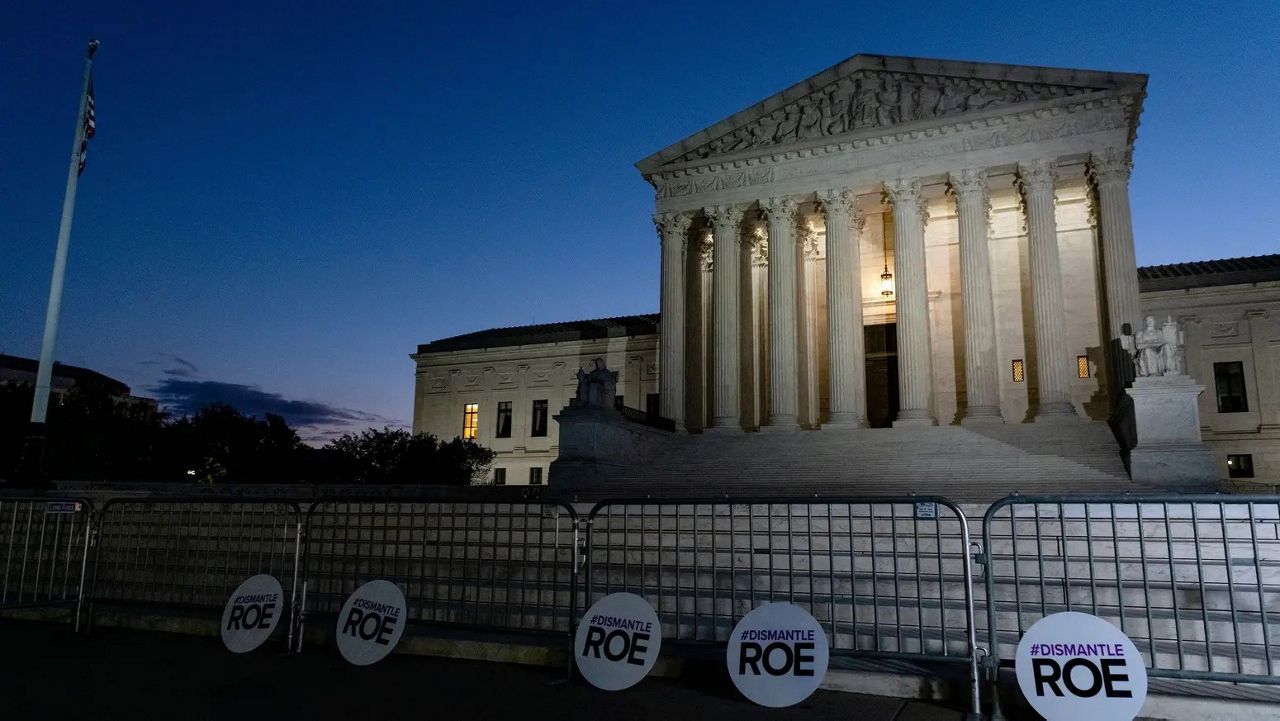Abortion providers in North Carolina are getting ready for more patients to come from out of state if the Supreme Court overturns Roe v. Wade.
A leaked draft decision, published May 2 by Politico, shows a majority on the court plans to overturn the landmark 1973 opinion legalizing abortion nationwide. If the court does overturn Roe, abortion could be outlawed or severely restricted in many states.
“If the Supreme Court gives the green light to ban or severely restrict abortion, we know that half the states in the country are poised to ban abortion entirely," Planned Parenthood’s Jillian Riley said.
“South Carolina, Tennessee and West Virginia are almost sure to ban abortion without delay, leaving North Carolina and Virginia as the closest places to get access to care in these neighboring surrounding states,” she said during a recent news conference with Democrats in Raleigh.
When Texas passed a bill earlier this year that had some of the most severe abortion restrictions in the country, women began traveling out of state to get abortions.
“We’re already seeing an increase in cases from the spillover effect. Bans in Texas and Oklahoma influence where those patients can get care, so they’re going to surrounding states,” said Dr. Beverly Gray, an OB-GYN at Duke Health.
Women traveling to other states creates a domino effect, creating delays throughout the system, she said.
“We’re seeing this tidal wave effect of folks seeking care,” Gray said.
“The vast majority of abortions happen in the first trimester; if you have delays in care due to access, that is going to shift,” she said. “This will impact care for North Carolinians.”
Riley said Planned Parenthood expects more people from surrounding states to come to North Carolina for abortions.
“Texas and its neighboring states had very little time to prepare for abortion to be banned,” Riled said. “We now have a little bit more time to be prepared and that is what we are doing right now.”
That means hiring more staff, increasing their hours and upgrading their facilities, she said.
“As an abortion provider in the South, we have been preparing for this moment,” she said.
There were about 25,000 abortions performed in North Carolina in 2020, according to data from the state Department of Health and Human Services. Less than 2% of those were for people from out of state, the data show.
“This is a draft decision. Abortion is still legal, it is still safe and it is still constitutionally protected here in North Carolina,” Riley said.
North Carolina has several laws on the books that restrict abortion, including a mandatory 72-hour waiting period and required abortion counseling. There are also restrictions on using state health care plans or Medicaid for abortions, except in cases of rape, incest or when a mother’s health is in danger.
Republicans who control the General Assembly could move to pass more laws restricting abortion in North Carolina if Roe is overturned.
“Along with millions of pro-life Americans across the United States, the NCGOP is optimistic that the Supreme Court will overturn Planned Parenthood v. Casey and Roe v. Wade later this Summer,” the North Carolina Republican Party said in a statement.
“Although we must wait until an opinion is handed down to know the particular details of the decision, it is important to note that such a decision will mark an extremely important milestone in the fight to protect the Sanctity of Life,” the party said.
The possibility of overturning Roe is putting more attention on the midterm elections in North Carolina, when every seat in the North Carolina House and Senate will be up for election.
“The balance of the General Assembly and the Supreme Court in North Carolina has never been more important, and we will continue fighting from now through Election Day and beyond to ensure that we have pro-life majorities as we face a post-Roe future," North Carolina GOP Chair Michael Whatley said.
While Republicans control both the state House and Senate, they do not have the votes to override Gov. Roy Cooper’s veto.
Cooper has vetoed several bills during his time in office that would restrict abortion.
“Now more than ever, governors and state legislatures must stand up for women’s healthcare. We know the stakes and must stand firm to protect a woman’s choice and access to medical care,” the governor said on Twitter last week.
A final decision on Roe will likely come from the Supreme Court this summer. If the court does overturn federal protection for abortion rights, it will become a focus for politicians on all sides of the debate before the Nov. 8 election.



